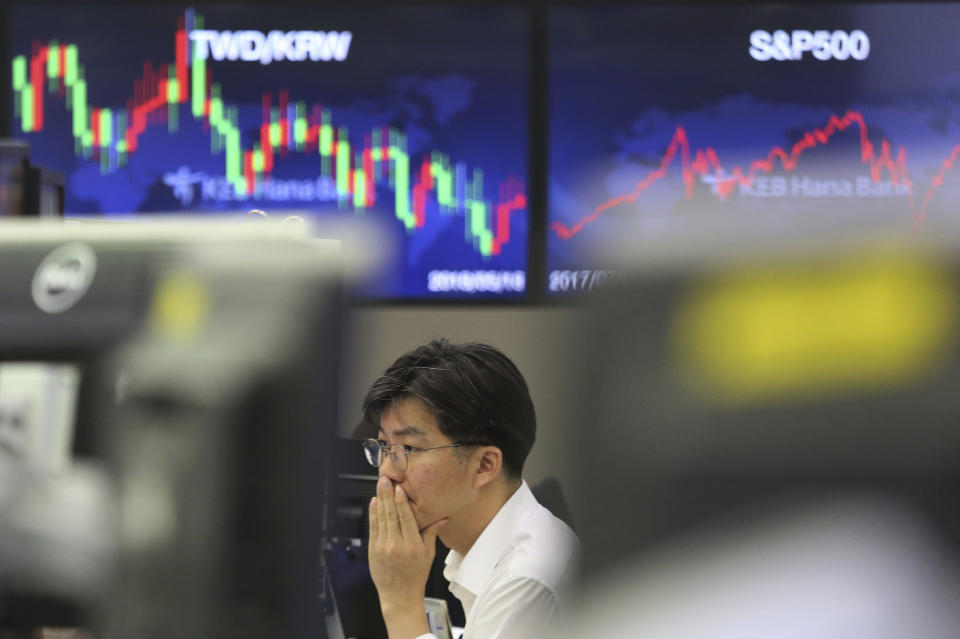World shares higher, Korean Kospi falls after missile launch
BANGKOK (AP) — World shares are mostly higher as investors watch for policy moves by the European Central Bank. The gains follow record high closes for the S&P 500 and Nasdaq overnight.
South Korea's Kospi declined, however, after rival North Korea launched two short range missiles into the sea.
The missiles fired early Thursday were the first weapons launches in more than two months and an apparent tactic to pressure Washington as North Korean and U.S. officials struggle to restart nuclear negotiations.
The ECB, which sets interest rates for the 19 countries that use the euro, is meeting Thursday to discuss how to best support growth as the region faces a possible departure of Britain from the EU and other uncertainties.
It is expected by many analysts to at least tweak its promise to keep interest rates at rock-bottom levels into next year. But a rate cut is possible, even with one of the rate benchmarks already below zero.
In Asia, Japan's Nikkei 225 index added 0.2% to 21,756.55 while the Kospi lost 0.4% to 2,074.48. In Hong Kong, the Hang Seng gained 0.3% to 28,594.30. The Shanghai Composite index climbed 0.5%, to 2,937.36. Australia's S&P ASX 200 advanced 0.6% to 6,818.00. India's Sensex edged 0.2% higher to 37,911.43. Shares also rose in Taiwan and Southeast Asia.
Regionwide, sentiment got a boost from news that the U.S. and China plan to resume trade talks next week, this time in the commercial hub of Shanghai.
The White House said the talks will cover a range of issues, including intellectual property, forced technology transfers, non-tariff barriers, agriculture, the U.S.-China trade deficit and enforcement.
The tariff war between Washington and Beijing has disrupted trade and cast a pall over the economic outlook for Asia and beyond. Talks collapsed in early May, with President Donald Trump ordering a further increase in punitive import duties. Trump and Chinese President Xi Jinping agreed to work to resume negotiations in late June.
Otherwise, there was little in the way of new developments to drive trading, with many investors awaiting policy announcements by the European Central Bank later in the day and from the Federal Reserve and Bank of Japan later in the month.
"The main issue facing policy makers is that now some of their actions did not bear the expected fruit and economies lie near recession despite exhausting their monetary policy toolkit," Alfonso Esparza of Oanda said in a commentary.
ENERGY: Benchmark crude oil added 38 cents to $56.26 per barrel in electronic trading on the New York Mercantile Exchange. It fell 89 cents to settle at $55.88 a barrel on Wednesday. Brent crude oil, the international standard, picked up 48 cents to $63.66 per barrel. Overnight, it fell 65 cents to close at $63.18 a barrel.
CURRENCIES: The dollar fell to 108.09 Japanese yen from 108.10 yen. The euro weakened to $1.1133 from $1.1142.




